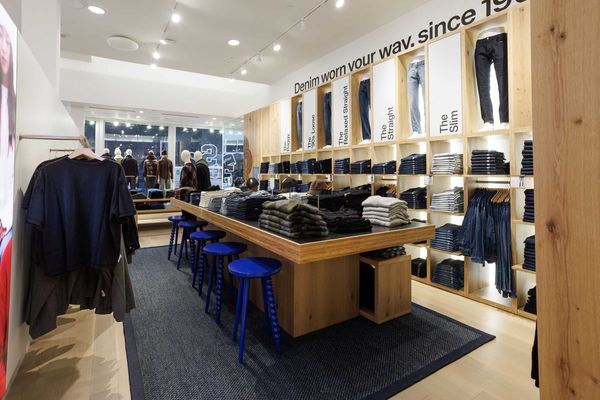We are living in an age that features the emergence of new marketplaces that are changing the way many of us live and work.
Take Gigwalk.
It’s a mobile (iOS) marketplace connecting businesses with people via their iPhones for the purpose of getting work done anywhere, often across multiple venues simultaneously.
In this chronically weak economy, many people will jump at the chance to earn some extra money doing small contract gigs, and that is what Gigwalk provides.
“What we do, in simple terms, is solve the age-old problem of connecting those who have jobs to offer with those who want them,” says CEO Ariel Seidman.
Since launching in May 2011, Gigwalk has built up a base of 150,000 active users in all 50 states, doing small jobs that typically pay from $5 to $200 and take from a few minutes to a few hours to accomplish.
The SoMa-based startup offers a solution to companies large or small that need to quickly find people in certain locations to do things like see what is on the menu of a restaurant, check on a retail display, or test out how store employees treat new customers.
A major factor in how Gigwalk helps businesses find contract workers for these and other tasks is the precise location data available through their iPhones.
“We can activate people faster by matching their location with the place where the work needs to be done,” explains Seidman. “Plus we’ve found that people using us are checking in far more frequent basis than I ever would have imagined.
“There is also a verification layer, in that we can help the businesses effectively audit the work – with GPS we know that they went to the location and how long they stayed there.”
The Gigwalk app also enables real-time communication back and forth between the contractor and the worker while the task is being performed.
“Gigwalkers love the freedom to work independently but what they told us in the early days was that they wanted better collaboration and communication, so we built that in,” says Seidman. “It’s proved to be phenomenally successful on both sides. Everyone likes the feeling that there is a human being there on the other end. It creates a sense of social connection on both sides.”
When businesses search for contract workers on this service, they pull up profiles, about half of which include their Facebook profile information (the identities of rest are verified via valid email addresses, phone numbers, photos, etc.).
Those with the best profiles and reviews will show up higher in the queue, and Gigwalk uses a variety of methods to encourage workers to improve their profile information.
“We use a carrot rather than a stick to encourage you to effectively reveal more about yourself,” Seidman says. “Thus you will get more and better gigs based on the better profile information you provide.
“When we started Gigwalk we had a philosophical debate – should we allow anonymity or require identity? We ultimately decided since it’s all about work, it is all about identity.”
The businesses using Gigwalk typically put money from a credit card into their accounts, which Gigwalk transfers to the workers’ PayPal accounts once the work has been verified. The company collects a 30 percent commission on the exchange.
The majority of those using the service are Millennials (aged 23-35), and over half are males. Ninety percent have attended at least some college (many are still students), which is not surprising since we are talking about the iPhone demographic here.
The company employs 15 and is backed by a blue-ribbon group of investors, including Jean-Francois “Jeff” Clavier, the Founder and Managing Partner of SoftTech VC.
The company also employs two full-time employees to keep on the lookout for any potentially fraudulent activities.
“Services built on mobile, like Gigwalk, were never possible before,” Clavier told me. “But now, with GPS, businesses can get jobs done in a few minutes, with real-time communication with the worker. It's become economical to do that which was way too expensive to even think of ten years ago.”
One thing that Ariel Seidman finds rewarding is that Gigwalk is the doing the opposite of driving jobs offshore during this time of weakness in the U.S. economy.
“We are doing the reverse, because we are bringing work here in the U.S. And it’s mainly coming from mid-sized and small companies, not the Fortune 500, though we have them too."
The average pay per gig has been gradually rising as employers and workers get comfortable with the service, up from around $5 earlier to around $20 now.
And although the service is only available on iOS at present, an Android version of the app is under development.




















